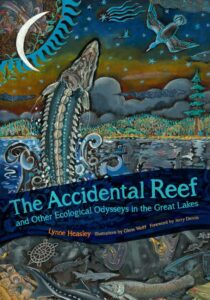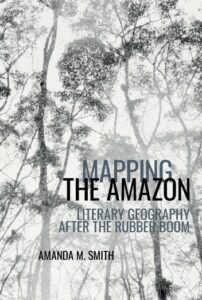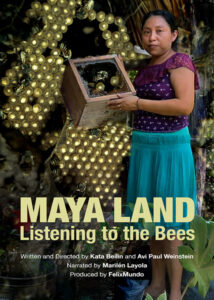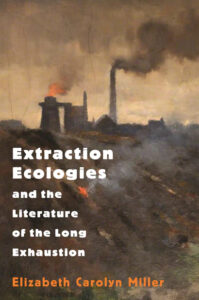This episode was recorded Friday, April 22, 2022
Co-Hosts: Matt Henry and Jennifer Ladino
FEATURED GUESTS/WORKS:
Elizabeth Carolyn Miller, Extraction Ecologies and the Literature of the Long Exhaustion
Extraction Ecologies and the Literature of the Long Exhaustion examines the rise of large-scale industrial mining in the British imperial world and considers how literature from the 1830s to the 1930s reckoned with a new vision of extraction-based life. The threatening horizon of resource exhaustion worked its way into narrative form as part of the discursive and imaginative process by which Britain came to understand itself as an empire thoroughly dependent on extraction: an extraction-based industrial society irretrievably bound up with finite, nonrenewable stores of earthly resources, with no viable alternative capable of preserving existing social relations.
Elizabeth Carolyn Miller is Professor of English at the University of California, Davis, where she teaches 19th and early-20th century literature as well as courses in the environmental humanities. Extraction Ecologies and the Literature of the Long Exhaustion (Princeton UP, 2021) is her third book.
 Lynne Heasley, The Accidental Reef and Other Ecological Odysseys in the Great Lakes
Lynne Heasley, The Accidental Reef and Other Ecological Odysseys in the Great Lakes
From a lake sturgeon spawning site up to global scales, The Accidental Reef and Other Ecological Odysseys in the Great Lakes places readers alongside fish and fishers, scuba divers and scientists, toxic pollutants and threatened communities, oil pipelines and invasive species, Indigenous peoples and federal agencies.  Lyrical, compassionate, the book grapples with the legacies and alternative futures shaped by a place’s immense natural wealth.
Lyrical, compassionate, the book grapples with the legacies and alternative futures shaped by a place’s immense natural wealth.
Lynne Heasley is an environmental historian at Western Michigan University. Through literary and academic hybrids, she explores our kaleidoscopic relationships with water and aquatic life.
 Amanda M. Smith, Mapping the Amazon: Literary Geography after the Rubber Boom
Amanda M. Smith, Mapping the Amazon: Literary Geography after the Rubber Boom
Since the end of the Amazon rubber boom in the 1920s, the river basin has inspired a number of novels about the violence that undergirds extractive industries in the region, and those novels indict faulty maps for their role in the continuous commodification of the forest. Mapping the Amazon examines how Latin American intellectuals from Amazonian countries turned to fiction to chart Amazonia otherwise. Smith considers the stakes of literary cartographies by analyzing their disruptive potential alongside various modernizing project that have carved Amazonia into cultural and economic spaces: border commissions, extractive infrastructure, school geography manuals, Indigenous educations programs, and touristic propaganda.  Even the critiques of the “novel maps” studied, however, have blind spots, and Mapping the Amazon considers the real political and ecological consequences of such unintentional omissions today.
Even the critiques of the “novel maps” studied, however, have blind spots, and Mapping the Amazon considers the real political and ecological consequences of such unintentional omissions today.
Amanda M. Smith is Assistant Professor of Literature at the University of California, Santa Cruz where she specializes in 20th- and 21st-century Latin American literatures and cultures through an environmental lens.
 Katarzyna Beilin, Maya Land: Listening to the Bees
Katarzyna Beilin, Maya Land: Listening to the Bees
Maya Land: Listening to the Bees tells the story of the conflict that erupted between Maya beekeepers and the Mexican government in 2011, fomented by the planting of genetically modified soy in the Yucatan peninsula. The film focuses on the role that Mayas’ pre-colonial and ongoing relationship with the bees and the bees themselves had in this conflict and how in the end the struggle has transformed thinking about development in the region.
The Mayas have linked the growing of GM soy to deforestation, water contamination, and damage to human and bee health. The conflict was triggered by the European Union’s rejection of Mexican honey exports due to unacceptable levels of GM pollen in 2011. This caused significant economic losses for the beekeepers of Yucatan—most of whom are of Maya ethnicity. The Maya appealed to the state authorities that GM soy be forbidden on basis of their “right to culture,” and after several years of struggle, the permission was revoked. The film contains in-depth interviews that explore the complexities found within this conflict. The Mayas are concerned not only over Apis mellifera bees that produce honey for export but also the sacred Melipona stingless bees, dependent on the forests cut under the GM-soy, as well as their milpas, the subsistence form of polyculture grown in the forest. Maya people are also worried about the toxic flow of pesticides and the sewage from the fields that are seeping into the underground water basin, threatening their health, and contaminating their sacred cenotes. Overall, the Mayas see industrial agriculture as a continuation of centuries of colonization. They realize that unless they mobilize their cultural knowledge and react to these threats, their livelihood, heritage, and memory will become collateral damage.
Kata Beilin is a Professor at the Department of Spanish and Portuguese and a Faculty Director of LACIS at the University of Wisconsin, Madison. Her current book and film projects are focused on a revival of Maya culture in Yucatan, Mexico, that is inspired by the Maya relations with sacred species and ecosystems: maize, Melipona bees and cenotes.

